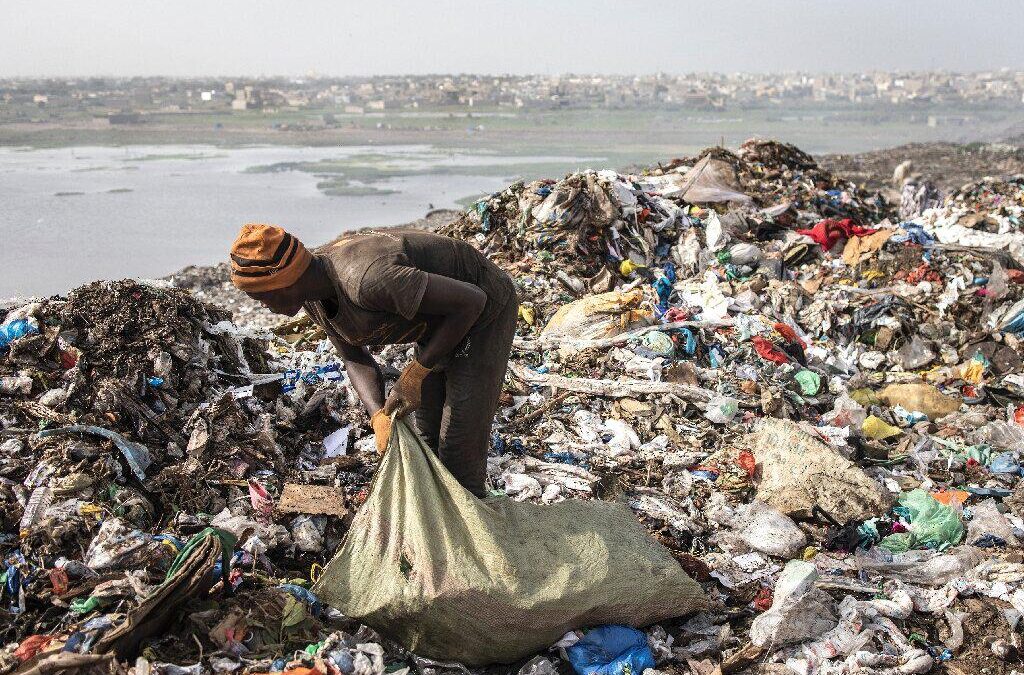Waste management is a critical issue for Senegal, and for the climate.
At COP27 in Sharm-El-Sheikh, Egypt, Carbon Growth Partners, the Republic of Senegal and Swiss carbon project manager ALLCOT announced a world-first private sector investment to generate carbon credits under Article 6 of the Paris Agreement.
So what is Article 6? According to the UNFCCC, Article 6 of the Paris Agreement “recognizes that some Parties choose to pursue voluntary cooperation in the implementation of their nationally determined contributions to allow for higher ambition in their mitigation and adaptation actions and to promote sustainable development and environmental integrity.” You can read the relevant UNFCCC decisions and more detail about Article 6 here: https://unfccc.int/process/the-paris-agreement/cooperative-implementation
The innovative partnership serves as a disruptive new paradigm to break the global deadlock on climate finance. It does so by overcoming the need for often complex and lengthy bilateral negotiations to be concluded before project finance can begin to flow. Under the arrangement announced today, private sector investors take on the financial risk of Article 6 carbon projects, which allows the host country to negotiate the ITMO process from a position of strength.
Under the terms of an agreement reached at COP27, funding will be provided to the Government-backed National Integrated Waste Management Company of Senegal (Sonaged) (in French: Société Nationale de Gestion Intégrée des Déchets) to implement sophisticated compost technology for food waste, which currently contributes up to 10% of global greenhouse gas emissions.
Waste will be diverted from ten sites and processed into organic compost, which reduces methane emissions. Apart from that, it can be used as a lower-cost, environmentally friendly alternative to chemical fertilisers. Plastic waste recovered in the process will also be recycled.
The program is expected to reduce carbon emissions by almost 250,000 tonnes by 2030. Emissions reductions from the projects will generate carbon credits, known as Internationally Transferred Mitigation Outcomes (ITMOs), which will be sold to countries and companies under Article 6 of the Paris Agreement. Carbon Growth Partners has committed the first US$2 million of a US$20 million investment program to scale the technology.
The announcement of the partnership was made by Mr Alioune Ndoye Minister of the Environment for the Republic of Senegal. Speaking ahead of Senegal Day at COP27, Mr Ndoye said: “Senegal – and the other nations of the global south – are not just here to claim damages & interests. We are here to demonstrate that we have the solutions – with the support of the private sector – to unlock the great potential of the Paris Agreement. Senegal is confidently leading the way and we warmly welcome this partnership with Carbon Growth Partners and ALLCOT in that respect.”
Speaking on behalf of Sonaged, Mr Mass Thiam highlighted the numerous benefits of the program: “In addition to climate outcomes, the program will foster employment opportunities for hundreds of women and men, improve the local environment and contribute to reduce Senegal’s dependence on chemical fertilisers”.
Carbon Growth Partners CEO Rich Gilmore said this new investment approach was key to ensuring Developing and Least Developed Countries can confidently assert the value of their role in climate action: “Innovative investment partnerships like this one can transform the way the private sector views climate investment in developing nations; moving from a focus on risk, to a focus on opportunity with strong partners like the Republic of Senegal. We are privileged to have been invited to play our part”.
The partnership was facilitated by the Switzerland-based carbon project manager ALLCOT. Alexis L. Leroy, CEO & Founder of ALLCOT, said “We celebrate this partnership as it sets a new – and long overdue – market dynamic. The confidence shown by Carbon Growth Partners is a great enabler for Senegal’s leadership under the new Paris economy era. ALLCOT is proud to be part of this paradigm shift and hopes that will inspire many other Parties to follow the movement for equity in the carbon markets.”


